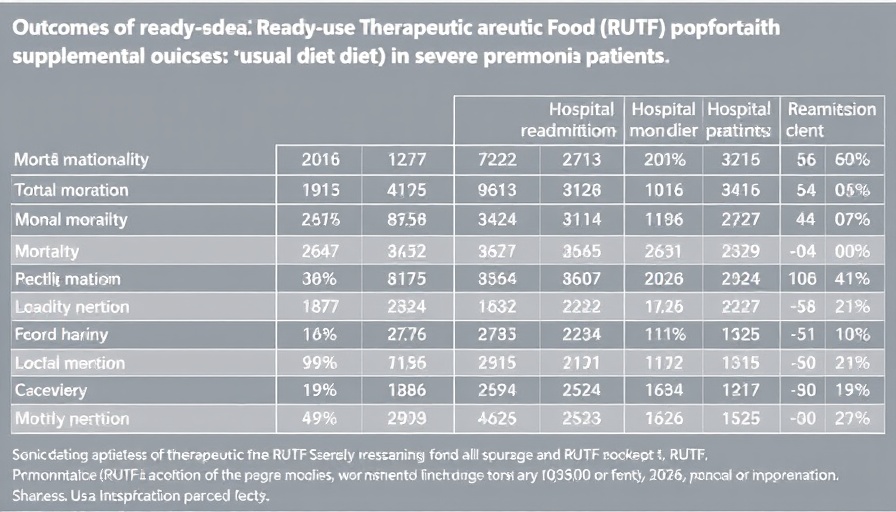
The Growing Importance of Personalized Glucose Management
As our understanding of metabolic health deepens, the significance of personalized glucose management has become paramount. With the diabetes epidemic projected to affect nearly 800 million individuals by 2045, there's an urgent need for solutions that empower individuals to monitor and control their blood glucose levels. Research indicates that how our bodies react to food can vary greatly, a concept known as postprandial glucose responses (PPGR). This variation is where personalized nutrition can make a big difference.
The Breakthrough of Machine Learning in Nutrition
Recent studies, including groundbreaking work from the Digital Epidemiology Lab at EPFL, have shown that machine learning algorithms can predict PPGR with surprising accuracy using only real-world data (RWD). This cuts away the complexity of needing intricate biological data or laboratory results, a game-changer for individualized dietary guidance. Utilizing simple measures such as glycemic and temporally resolved diet data, this approach opens doors for more people to access personalized nutrition without rigorous testing or cost barriers.
Understanding the Role of Diet and Glycemic Responses
The fundamental principle at the heart of dietary management is that foods interact with our metabolism in unique ways. Researchers emphasize that understanding the glycemic index (GI) and how different macronutrients affect glucose levels is essential. Carbohydrates are particularly influential, prompting significant blood sugar responses, which can be crucial information for those looking to manage or prevent diabetes. By leveraging RWD from a broad population, we enhance our knowledge of what constitutes optimal dietary choices for various individuals.
Real-World Implications of Glucose Prediction Technology
Imagine a world where your daily meals are tailored not just to taste but to how they affect your health based on your unique glucose response. This is not just speculation—it's where science is leading us. This predictive capability offers the potential to integrate advanced health metrics into apps that help you plan meals effectively. Revolutionary innovations like continuous glucose monitoring (CGM) can support these models, providing continuous data on glycemic fluctuations, thus reinforcing the importance of personalized dietary frameworks.
Future Trends in Nutrition and Health
The trajectory of dietary management is veering towards an era where artificial intelligence and real-time health data converge to create bespoke solutions for glucose management. This trend is part of a larger movement towards biohacking and longevity strategies. As consumers increasingly seek anti-aging supplements such as NAD+ and resveratrol, these personalized insights into glucose response will play a crucial role in how health supplements are utilized in conjunction with diet.
Conclusion: Taking Charge of Your Health
The findings from the EPFL study offer a glimpse into an accessible future where health and nutrition are personalized, empowering individuals to take control of their well-being. With the rise of nutraceuticals—like Omega-3s and CoQ10—people not only have the knowledge of their glucose responses but can optimize their supplement intake to enhance longevity and vitality.
As you consider your health journey, remember that knowledge is power. In a landscape filled with conflicting dietary advice, understanding your unique needs through tools like glucose prediction can lead to more effective diet choices. Embrace the opportunity to explore how personalized nutrition can transform your health. Start today by considering your dietary habits and how they may be impacting your glucose levels. Small changes can lead to significant improvements over time!
 Add Row
Add Row  Add
Add 




 Add Row
Add Row  Add
Add 


Write A Comment